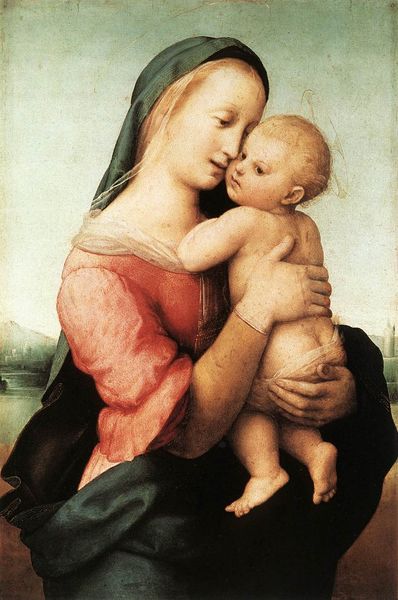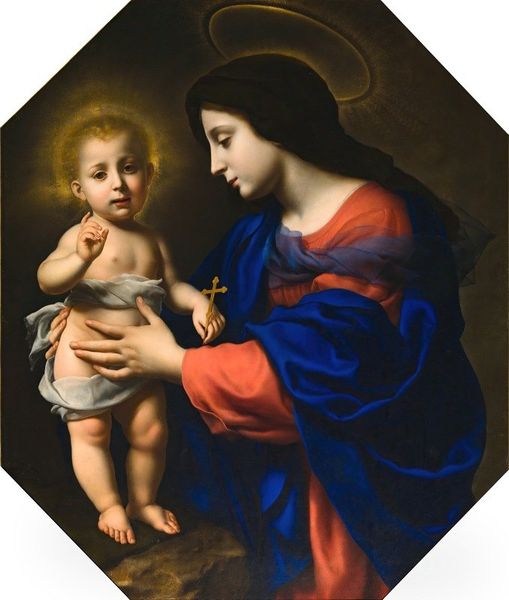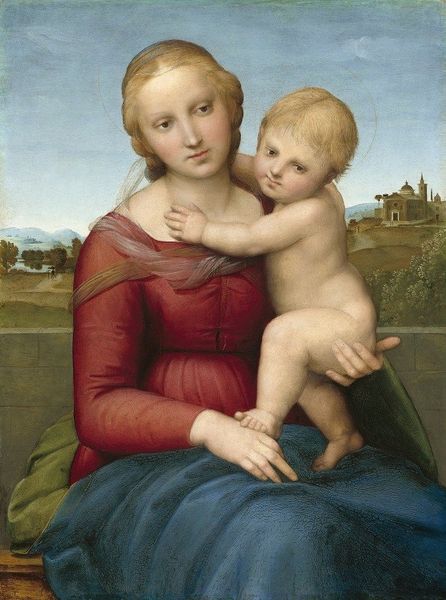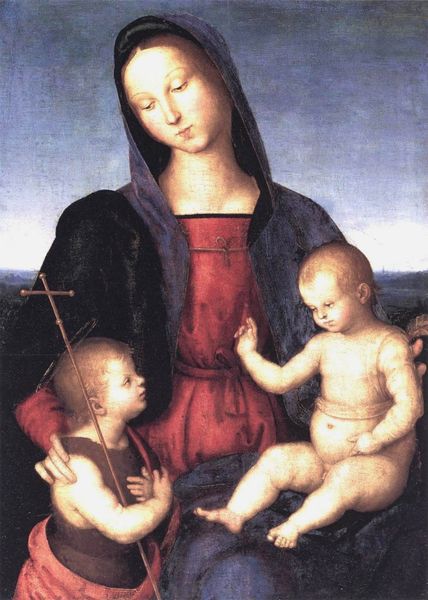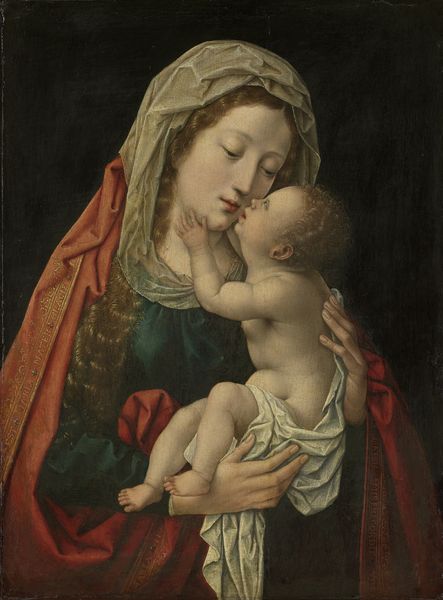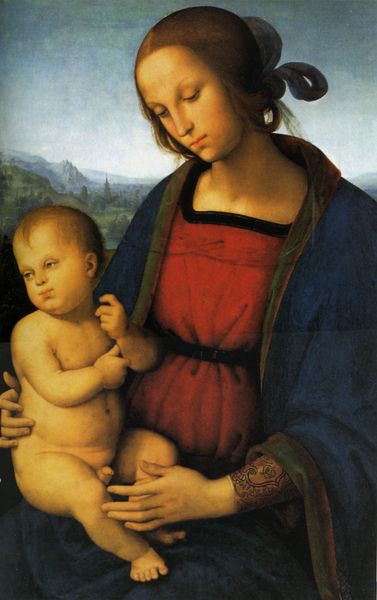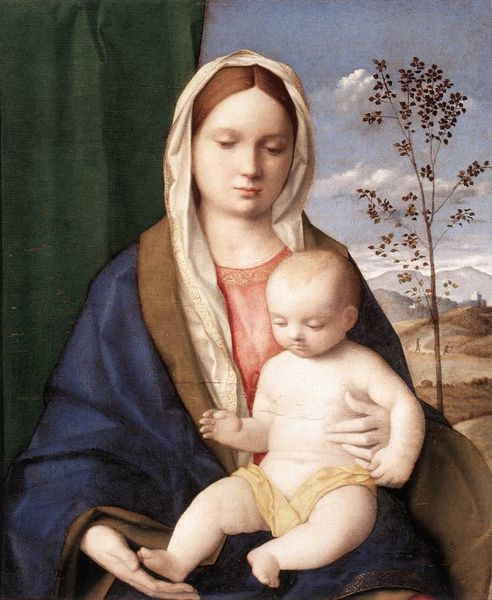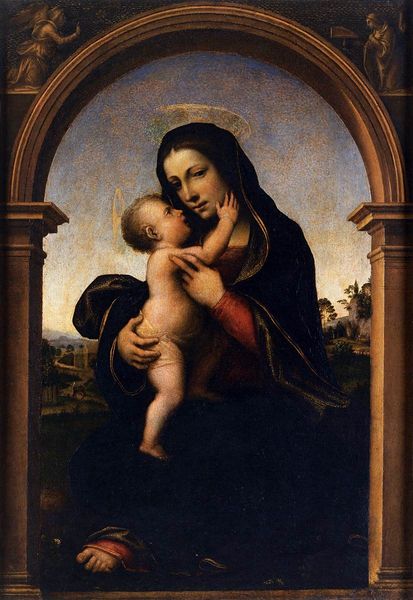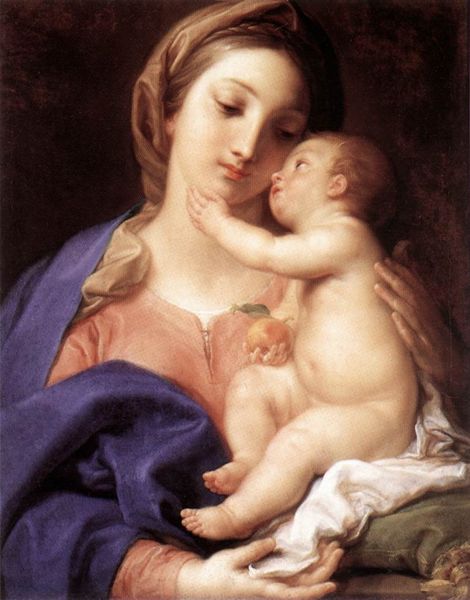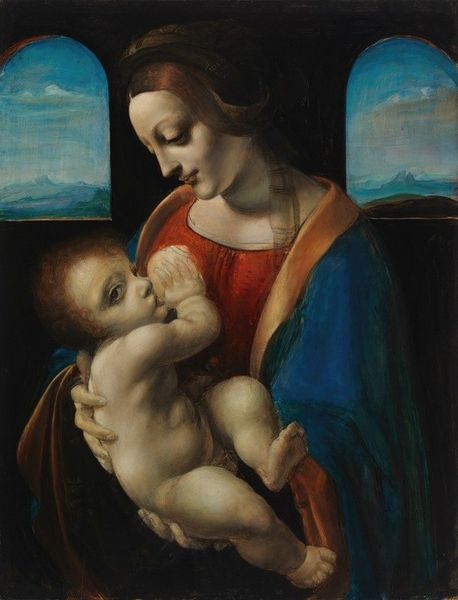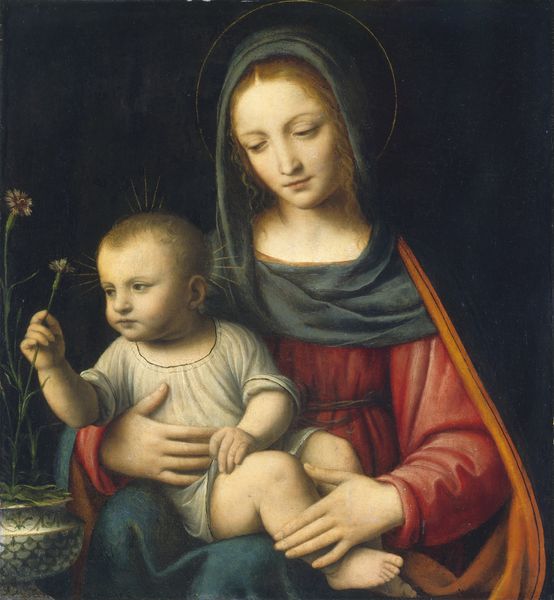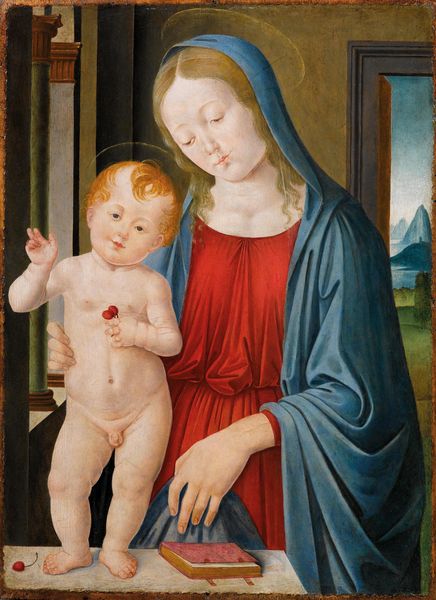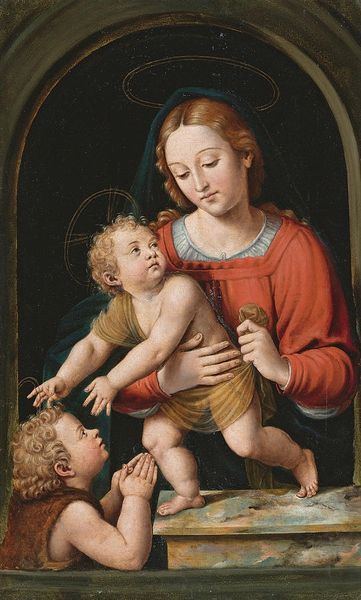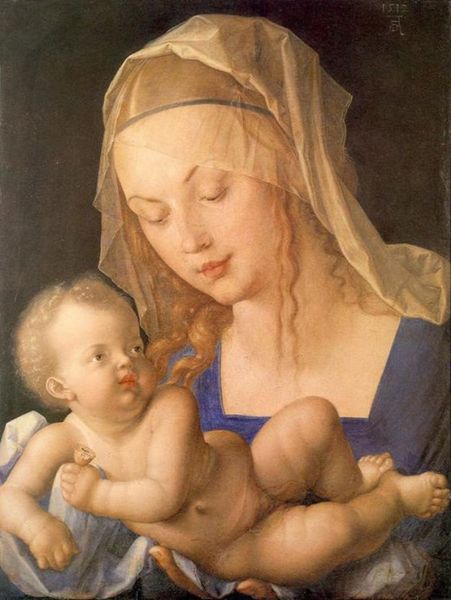
painting, oil-paint
#
portrait
#
high-renaissance
#
portrait
#
painting
#
oil-paint
#
figuration
#
history-painting
#
italian-renaissance
Copyright: Public Domain: Artvee
Raphael painted this Madonna and Child using oil on panel. It is a magnificent example of a technique called sfumato, where the artist applied thin glazes of paint to create soft, imperceptible transitions between colors. In Raphael’s time, these techniques were relatively new, marking a shift in the way paintings were produced and consumed. Unlike earlier tempera paints, oil allowed for more realistic textures and light effects, pushing painting closer to life. Look closely, and you'll see how Raphael layers the pigments, building up the forms with light and shade. This wasn’t just about technical skill; it was about transforming the very materiality of paint into an illusion of reality. The cost of materials like high-quality pigments and wood panels, plus the time required for such detailed work, meant that art like this was a luxury item, made for an elite circle of patrons. But by focusing on the process, we can see how Raphael elevated his craft, creating works that were both materially rich and visually stunning.
Comments
No comments
Be the first to comment and join the conversation on the ultimate creative platform.
